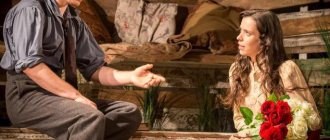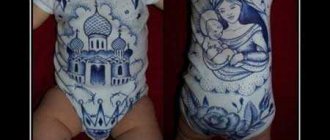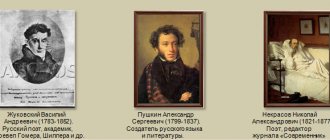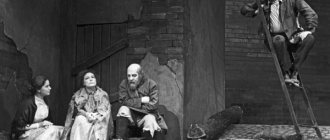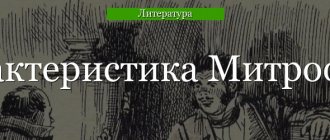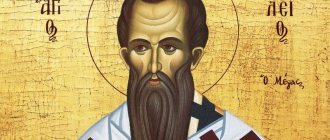Instructions and quotes from St. Luke of Voino-Yasenetsky
Remember that you need to leave the place where people are engaged in mocking, laughing, where they mock their neighbors. Leave, leave when you find yourself in such an unclean environment... Shut your ears and get away from these unfortunate scoffers and laughers... The roots of ingratitude are in human insatiability; no matter how much a person receives, everything is not enough for him, he does not thank, but grumbles for not receiving more... But those few who are always grateful for everything will receive great glory and honor, great grace from God. Know that every time you get angry, swear, or enmity against your loved ones, when evil and hatred boil in your heart, know that demons are at work in your heart. Know that every time you lie, slander, slander the good name of your neighbors, go to inform, try to cause harm to your neighbors - know that demons operate in the heart... Refrain, abstain, first of all, from what defiles you from your lips : from lies, curses, condemnation, from quarrels and gossip.
Refrain from this, and then your heart will gradually become more and more pure and pure, and little by little it will be transformed from a haven of demons into a temple of the Holy Spirit.
1. To know God means to know all-perfect, absolute love.
2. Prayer is the most important of all Christian deeds. All his other deeds are small and insignificant, completely insignificant compared to the work and labor of prayer.
3. Christ stands at the door of the heart of each of you and slowly, slowly knocks and waits to see if the door will open and let you in. And you just have to open the door for Him to come in and have supper with you.
4. Conscience is given by God to everyone, but it depends on a person whether to listen to the voice of conscience and follow it or drown out this voice.
5. God is close to us when we have constant communication with Him in prayer and acts of love.
6. For a life full of good deeds and mercy, the All-Righteous God will reward with glory, honor and peace even in this life, and first of all to the Jew, that is, to the one who knows God’s law, for his fidelity to this law and fulfillment of it.
7. There is the highest form of prayer - prayer without words, the cry of the soul to God, opening the heavens and bringing us into the most living communication with God.
8. Make it a rule to never remember your good deeds, completely forget about them. Always remember only your sins, your bad deeds. And then you will become humble, you will consider yourself more sinful than all people, and humility is the first and main virtue of a Christian.
9. Almsgiving has enormous, endless power.
10. The goal of life is perfection in love, in righteousness, and for this one must work tirelessly to cleanse one’s heart.
11. Prayer, which does not create visible miracles that amaze our minds, works miracles in the secret of human hearts.
12. Our mercy produces great gratitude to God in people far from Him.
13. Only unceasing prayer, like falling drops, softens hearts frozen without prayer.
14. To do anything good, truly good, we must be humble.
15. We must thank God when we are in weakness, in insults, in needs, in oppression for Christ, for then we are truly strong.
Saint Luke Voino-Yasenetsky (Luke of Crimea) - (1877-1961)
Saint Luke: about the eternal ideal of doctor and patient
Billboards with words of gratitude to doctors involved in the treatment of COVID-19 began to appear in many cities of Ukraine and the world. This fact causes me some skepticism. And the point here is not in those people who chose this noble profession and, as a result, found themselves on the “cover” of a largely artificial panic, but in the fact that only such a psychological shake-up forced human society to think about the meaning of the medical feat. But our doctors and medical staff performed feats every day and hourly even before this unfortunate coronavirus.
Obviously, human vices affect everyone, and doctors are no exception. Many people talk about the shortcomings of our healthcare, about the extortions or unprofessionalism of some doctors, but let’s leave all these thoughts aside and pay attention to the medical ideal, the embodiment of which was our beloved Saint Luke.
My father always said that the most important thing for a doctor is love for his patient.
I grew up in a family where the medical profession had already become almost dynastic, and therefore I know the life of doctors firsthand. All medical specialties are important, but there are some among them that would make any movie “superhero” look like a child. Many today admire the sacrifice of infectious disease specialists, but no one talks about the feats that are performed every minute in operating rooms, in hospices and intensive care units. More precisely, in theory, we seem to remember everything about this and, perhaps, even know something, but the real situation is known only to those who come face to face with human pain, and with human recklessness, and with bureaucratic delays, with insanity, and even outright arbitrariness of his superiors, but at the same time he still continues to treat and save human lives.
My father always said that the most important thing for a doctor is love for his patient. With this attitude, my brother went to become a doctor, with this attitude my father teaches the younger generation of doctors, and Bishop Luke speaks about this: “God is merciful and has commanded us all, first of all, to do deeds of mercy, deeds of love. Healing illnesses is the first of these acts of mercy: it is a manifestation of our love and compassion for unfortunate sick people.”
Unfortunately, today we are increasingly being told that medicine is one of the areas of social services.
With such an attitude, a noble profession becomes a noble calling and, as a result, a feat. Unfortunately, today we are increasingly being told that medicine is one of the areas of social services, and, accordingly, we need to pay for services. This fact cannot but influence the attitude of doctors to their work, who, like all people, are subject to the passions of envy, love of money, money-grabbing, etc. In the time of St. Luke, people had different internal attitudes and life principles, but without spiritual pathologies It didn’t work out then either. Vladyka recalls one of his colleagues who kept 130 thousand rubles under his mattress, and when he lost them, he became very sad, from which he soon died.
I don’t know whether any of the younger generation of doctors will read this material, but on the day of remembrance of the great saint and famous surgeon, it is impossible not to say about it.
Doctors often bear responsibility for the human soul, for the moral and spiritual state of the patient.
We mistakenly think that a doctor is only responsible for the human body. But the responsibility for the human soul, for the moral and spiritual state of the patient often falls on his shoulders. Moreover, professional activity itself only contributes to the development of the necessary qualities. There is an instructive story about this from the memoirs of St. Luke.
In one of his sermons, he once said that among his flock there was a very pious girl who sincerely loved Christ and the Church. But she was somehow seduced and led into sin by one very experienced adulterer, whose goal in life was precisely the seduction of such open and pure girls. Bishop Luke says that it was his medical activity that allowed him to learn to recognize the pathological states of human souls. He noticed in time that this girl was so shocked by her fall that symptoms of insanity began to appear in her, leading her to thoughts of suicide.
Sensitive, tireless guidance from the saint helped this unfortunate girl return to normal.
It also happens that the doctor is the one whom the dying patient sees last. In such situations, the doctor, to a certain extent, becomes both a psychologist and a priest.
Doctors are constantly faced with human pain, suffering and death, both for patients and their loved ones. It also happens that a tormented soul needs help here and now, and it also happens that the doctor is the one whom the dying patient sees last. In such situations, the doctor, to a certain extent, becomes both a psychologist and a priest.
There is no impudence in these reasonings, but boldness, which is what St. Luke, in fact, is talking about. He begins his reflections with a reference to the words of the Gospel: “Having called the twelve, he gave power and authority over all demons and to heal diseases, and sent them to preach the Kingdom of God and to heal the sick” (Luke 9: 1-2). As we see, along with preaching, the Savior also undertakes the great work of healing, to which He also called His disciples.
It would seem that the eternal fate of a person depends on preaching, and the temporary, earthly fate depends on medicine. Why then does Christ pay such attention to it, actually equating it with mission? Vladyka Luke answers: “Because illness is the most severe sorrow of humanity. There are many terrible and painful diseases that completely distort a person’s life, preventing him from living and acting, plunging him into boundless sorrow, melancholy, tears and despondency.” The saint further adds that blessed is the doctor who takes up the study of medicine not for the sake of earning an income and achieving a well-fed life, but out of love and compassion for the sick. Blessed is such a doctor because he fulfills at least one of the two tasks that the Savior sent his disciples to do.
It turns out that to be a worthy and conscientious doctor means to join in the apostolic feat. How our medicine would change if all doctors, paramedics, laboratory assistants, nurses and orderlies understood this and felt the height of their calling!
“The chambers of this hospital were illuminated with the light of love and joy when I entered them; The sufferers for their homeland saluted me with their legs and arms, which I had healed, raised high. It is unforgettable because it is a pure outpouring of love.”
Of course, today it is almost impossible to live without a constant material income, but if you just want to earn money, then it is better not to go into medicine. The price of a formal attitude towards this profession may be too high: you can ruin people’s lives and your own soul.
A good, talented doctor will never die of hunger, but still the highest reward and great joy for him should be the gratitude of his patients. We remember that during the Great Patriotic War, Saint Luke headed all the surgical work in the Krasnoyarsk evacuation hospital 15-15, and this is how he describes what we are talking about: “The chambers of this hospital were illuminated with the light of love and joy when I entered them; The sufferers for their homeland saluted me with their legs and arms, which I had healed, raised high. It is unforgettable because it is a pure outpouring of love.”
There is nothing to add to this. This attitude towards the profession and the patient is the ideal of a doctor. But does the same ideal of a patient exist? Exists. This is a grateful patient.
A sick person is often very helpless. He is in pain, bad, scared. When we are sick, we want to get professional help as soon as possible and get rid of the pain. But when we suffer, we begin to perceive the surrounding reality through the prism of our pain and fear, and because of this we often do not see the problems and difficulties that doctors have to face.
Of course, there are unscrupulous doctors and medical staff, but this should not deprive us of our respect and gratitude to medical workers who are dedicated to their profession. It would be good for us, as patients, to learn to listen, hear the doctor and be grateful to him. Saint Luke once recalled with bitterness that he had to encounter much more touching and sincere gratitude from Jews and Muslims than from Russians.
* * *
Modern living conditions, with their endless crises and other cataclysms, have greatly shaken our psyche, we have lost trust in the people around us. Let us remember that we are after all the beloved creation of Almighty God, that we are not robots and are destined for eternal life. No matter what area of activity we touch, if we learn to take steps towards each other, then this world will become a little better. Just as he became better everywhere where the foot of the saint and confessor Luke stepped - a real doctor of human bodies and souls.
Quotes from Luke from Maxim Gorky’s play “At the Depths”
Luka is a character in the play “At the Lower Depths” by M. Gorky. Wanderer, 60 years old.
Luke's statements about truth
Here... you say it’s true... It’s true, it’s not always a person’s illness... you can’t always cure a soul with the truth... /action 3/
P e p l u: And you, believe me, and go and see for yourself... You’ll say thank you... Why are you bothering here? And... what do you really need... think about it! She really might be crazy for you... /act 2/
Proverbs and aphorisms of Luke
For an old man, where it’s warm, there’s a homeland... /act 1/
This is how it always turns out: a person thinks to himself - I’m doing a good job! Grab - but people are unhappy... /1 action/
There is no bread, they eat quinoa... if there is no bread... /action 3/
Everyone, dear, endures... everyone endures life in their own way.. /act 2/
You - die with joy, without anxiety... Death, I tell you, it is like a mother to small children... /act 2/
What good is it if you forgot what you love? The beloved contains all the soul... /act 2/
Luka's dialogues with other characters
Look! And there, in the kitchen, the girl is sitting, reading a book and crying! Right! Tears are flowing... I tell her: honey, what are you doing, huh? And she is a pity! Who do I say I feel sorry for? But, he says, in the book... This is what a person does, huh? Also, apparently, out of boredom.../action 1/
S o v o r i t A k t e r u: Well, what? You... get treatment! Nowadays there is a cure for drunkenness, hear! They treat them for free, brother... this is the kind of hospital built for drunkards... so that, therefore, they can be treated for nothing... They recognized, you see, that a drunkard is also a person... and they are even glad when he wants to be treated! Well, here you go! Go.../act 2/
Ane: So, you’ll die, and you’ll be at peace... you won’t need anything else, and there’s nothing to be afraid of! Silence, calm... lie down! Death - it calms everything down... it is gentle for us... If you die, you will rest, they say... that’s true, dear! Because where can a person rest here? /action 2/
Anna: And the Lord will look at you meekly and tenderly and say: I know this Anna! Well, he’ll say, take her, Anna, to heaven! Let her calm down... I know, she lived a very difficult life... very tired... Give Anna peace... /act 2/
To Ash’s question whether there is a God: If you believe, there is; If you don’t believe it, no... What you believe in is what it is... /action 2/
Luka: So, approximately, I served as a watchman at a dacha... for an engineer near the city of Tomsk... Well, okay! There was a dacha in the forest, a remote place... and it was winter, and I was alone in the dacha... It was nice - good! Only once - I hear - they’re climbing!
Natasha: Thieves?
Luk a. They. They are climbing, that means, yes!.. I took the gun, went out... I looked - two... opened the window - and were so busy with their work that they didn’t even see me. I shout to them: oh you!.. go away!.. And they are coming at me with an ax... I forestall them - leave me alone, they say! And now I’ll shoot!.. Yes, I point the gun at one, then at the other. They fell to their knees: they say, “let me go!” Well, I was already... angry... about the ax, you know! I say, I chased you devils away, don’t come... and now, I say, break some branches! They broke it. Now, I order, one - lie down, and the other flog him! So, on my orders, they flogged each other. And how they were flogged... and they say to me - grandfather, they say, give me some bread for Christ’s sake! Let's go, they say, without eating. Those are the thieves, my dear (laughs)... those are the ones with the axe! Yes... Both are good men... I tell them: you devils should have just asked for bread. And they are tired, they say... you ask and ask, but no one gives... it’s a shame!.. So they lived with me all winter. One, called Stepan, would take a gun and roll into the forest... And the other, Yakov, was still ill, coughing all the time... The three of us, it means, were guarding the dacha. Spring has come - goodbye, they say, grandfather! And they left... they wandered off to Russia... Natasha. Are they runaways? Convicts?Luka. Indeed, so, the fugitives... left the settlement... Good men!.. If I didn’t feel sorry for them, they might have killed me... or something else... And then - a trial, and a prison, and Siberia... what’s the point? Prison will not teach you goodness, and Siberia will not teach you... but man will teach you... yes! A person can teach goodness... very simply! /action 3/
Luke's quotes about people
And that's all people! No matter how you pretend, no matter how you wobble, but you were born a man, you will die a man... And still, I see, people are becoming smarter, more and more entertaining... and even though they live, they are getting worse, but they want to be better... stubborn! /1 action/
We are all wanderers on earth... They say, I heard, that the earth is our wanderer in the sky. /1 action/
How many different people on earth are in charge... and they frighten each other with all sorts of fears, but there is no order in life... and there is no purity... /1 action/
Is it possible to abandon a person like that? Whatever it is, it is always worth its price... /1 action/
I don't care! I respect swindlers too, in my opinion, not a single flea is bad: all are black, all jump... that’s it. /1 action/
...a person must respect himself.../action 3/
A person can do anything... if only he wants to... /action 2/
I’m just saying that if someone hasn’t done good to someone, he has done something bad... /act 2/
And the good side is Siberia! Golden side! He who has strength and intelligence is like a cucumber in a greenhouse! Act 2/
A person lives differently... as his heart is adjusted, so he lives... today he is good, tomorrow he is evil... /act 2/
Natasha: You, girl, don’t be offended... nothing! Where are they... where are we to feel sorry for the dead? Eh, honey! We don’t feel sorry for the living... we can’t feel sorry for ourselves... where is it! /action 2/
You - beware of the living... that's what I say... /act 2/
There are people, and there are others - people... /action 3/
Petting a person is never harmful... /action 3/
Girl, someone needs to be kind... you need to feel sorry for people! Christ felt sorry for everyone and told us so... I’ll tell you - it’s time to feel sorry for a person... it can be good! /action 3/
Characteristics and biography of Luke
They crushed it a lot, that’s why it’s soft... (Laughs with a rattling laugh.) / 1st action /
Poems! What do I need them for, poems?.. /act 2/
Look - what am I? Bald... Why? From these very different women... I knew them, women, perhaps more than there were hairs on my head... /act 2/
Ekaterina Kalikinskaya. "No man is an island"
“Alone Warrior in the Field” is a story addressed to teenagers. The author of the work is the writer and journalist Ekaterina Kalikinskaya, the author of two biographical books about St. Luke and a series of broadcasts on Radio Radonezh. Kalikinskaya talks about children of different generations of the same family who lived during a very difficult period in our history (1916–1996). Some experienced the Civil War during their childhood and youth, others grew up in the 1930s, others survived the Great Patriotic War, and others were born in the post-war years. Each of these guys experienced a meeting with Saint Luke (Voino-Yasenetsky). These fateful meetings are narrated in this touching book.
Quote
“Danya rushed into the stream of people, trying to break through to the arrested man - he wanted him to notice him, or at least to touch the hem of his clothes, as they touched the saints... But the boy was constantly being pushed away by someone’s sweaty hands and shoulders, pushed, turned around , carried in the other direction. Finding himself far behind, forced into the stuffy, dark station building, Danya began to cry, not ashamed of his tears.”
Ekaterina Kalikinskaya. "Saint Luke. Facts, documents, memories"
This book is biographical. Its author is a writer and journalist, a member of the Moscow Society of Historians of Medicine. The book was compiled by the author based on materials for a series of programs about St. Luke on Radio Radonezh. For this purpose, many historical sources were used about the life of the archbishop, theologian, outstanding surgeon and professor of medicine. Cases from the medical practice of the saint, memories of contemporaries, relatives, and patients are given. The work also includes the memoirs of Saint Luke’s great-nephews Nikolai and Yuri Sidorkin, as well as many photographs from the family archive, which were provided to the author by the saint’s relatives.
Quotes
“He followed not only the Hippocratic Oath, but also the Gospel commandments: “Love your neighbor as yourself.”
“Vladyka Luke undoubtedly realized that his gift was from God. Even at the very beginning of his activity, before being ordained, he demanded to hang an icon in the operating room and refused to operate when it was removed. All difficult, masterfully performed operations that ended successfully cannot be explained only by the medical art of the surgeon.”


